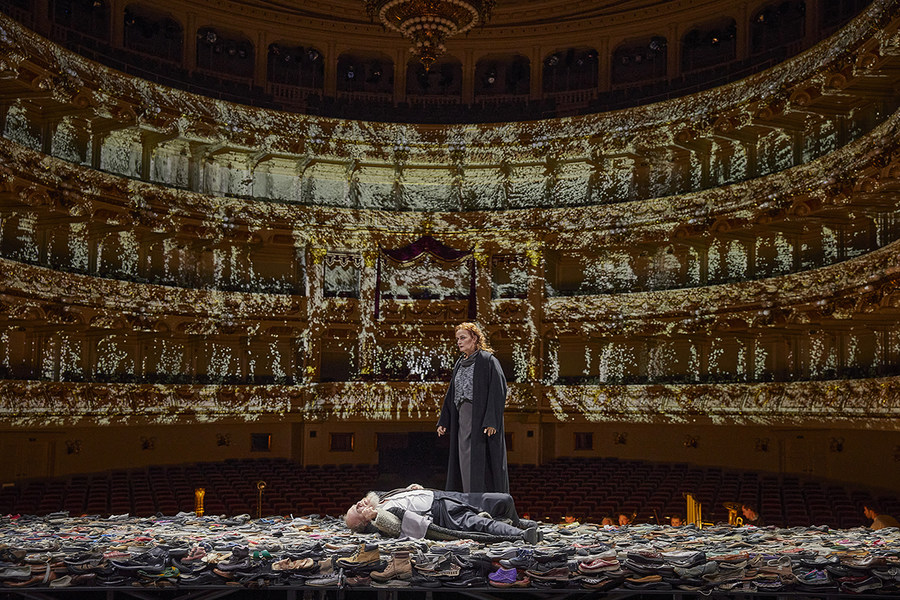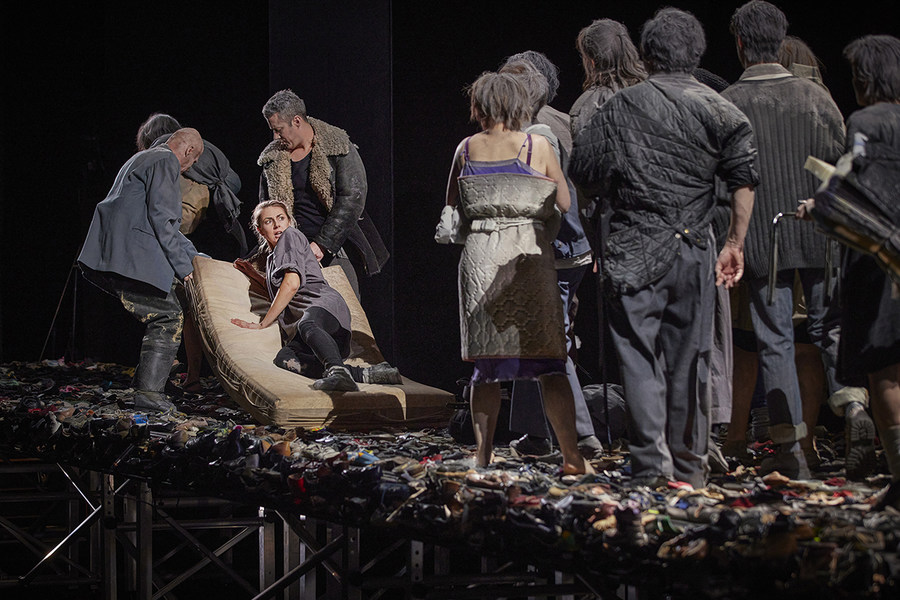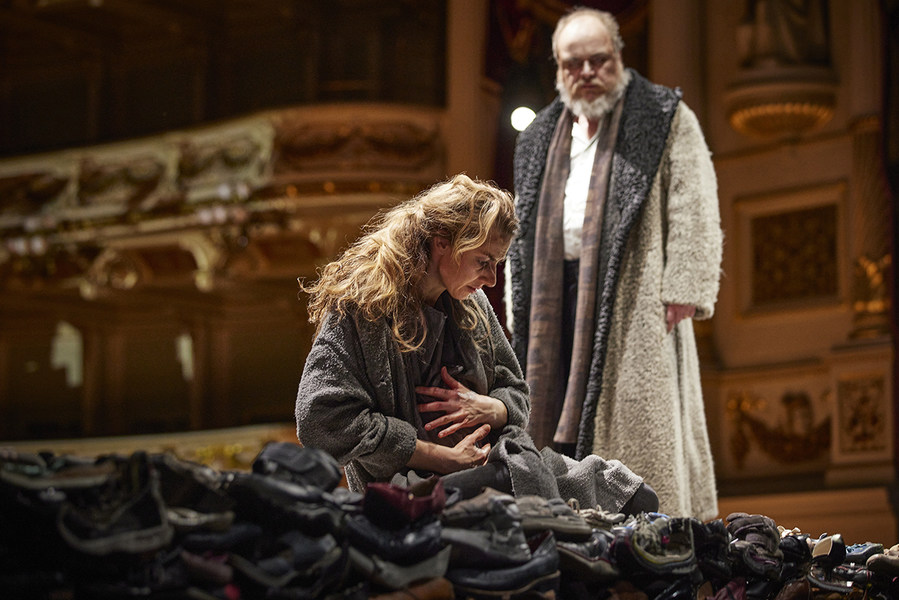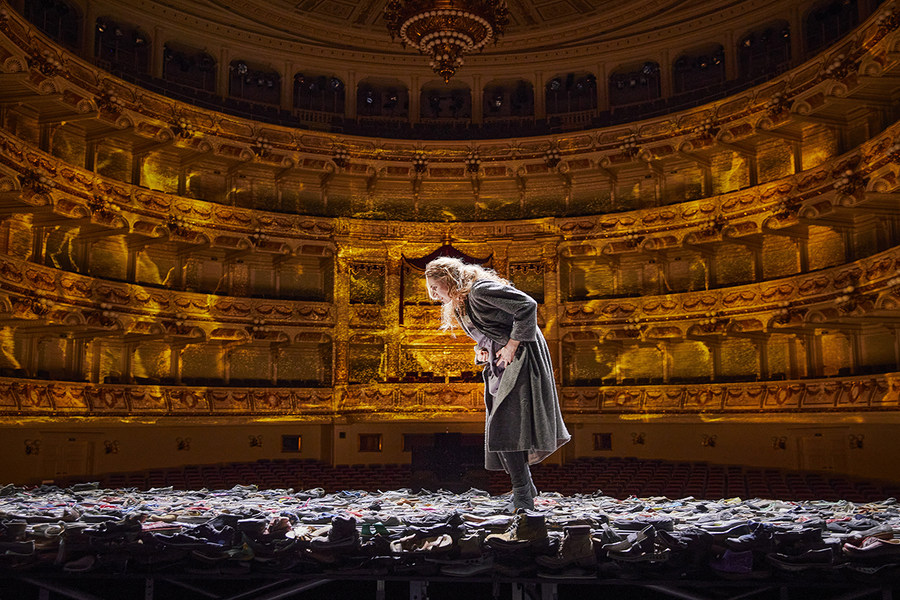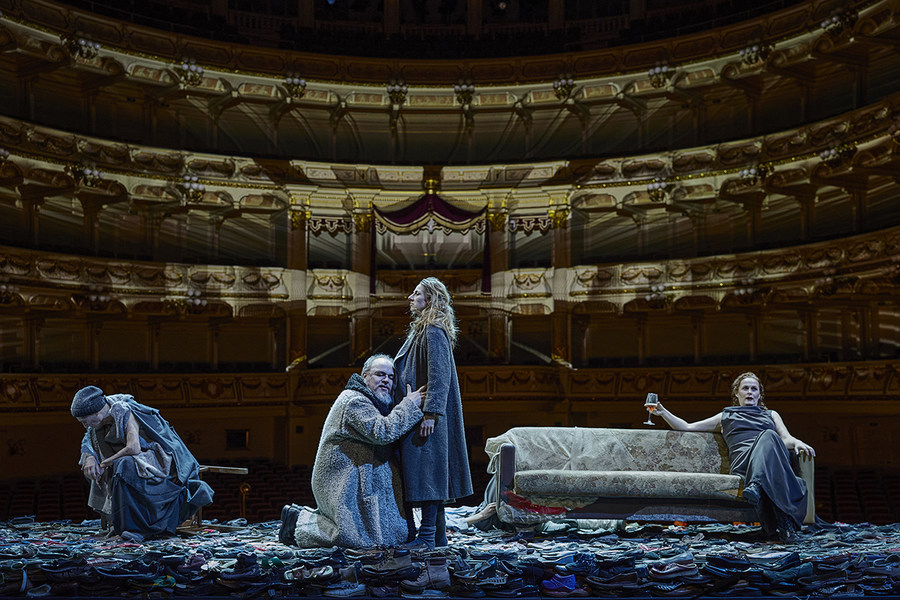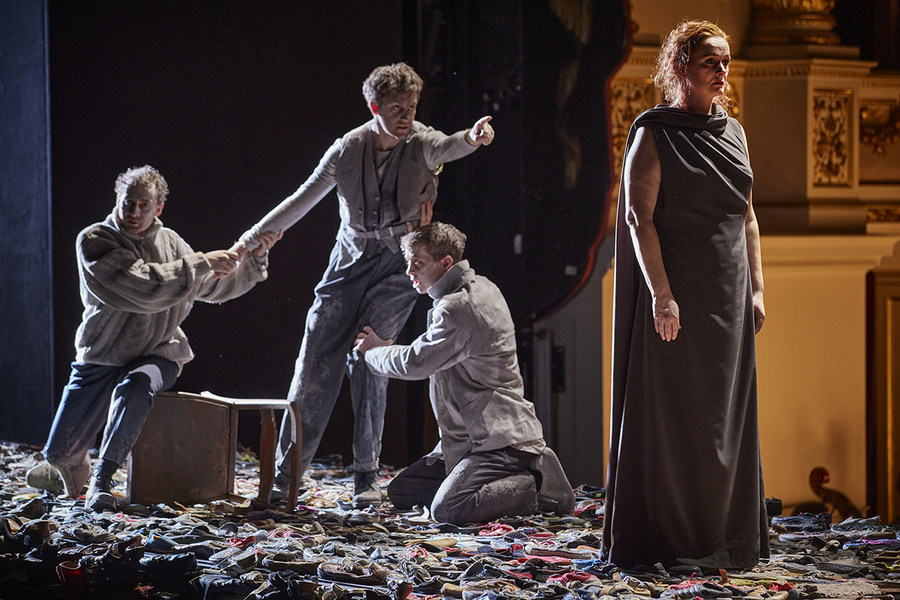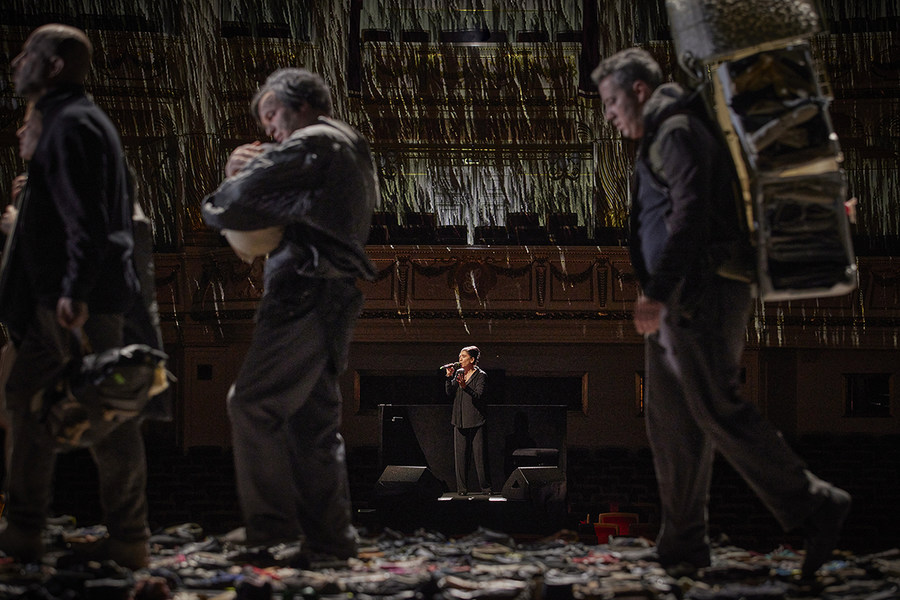World premiere. Musical theater in ten scenes
Libretto by Helmut Krausser
Free seating on the stage of the Semperoper
Premiere
22. January 2022,
No further performances in the current season.
Explore
Stücktrailer
The Other Wife
In his opera based on the biblical story of Abraham and Sarah, composer Torsten Rasch has created an exciting tale of a ménage à trois which at the same time deals with the emergence of the three great world religions. Abraham fathers a child with the maid Hagar when his wife Sarah does not bear him any offspring. However, after Sarah unexpectedly gives birth to Isaac, she kicks Hagar out. The story of the prophet Abraham relates the common origins of the three world religions: Christianity and Judaism trace their roots to Abraham and his son Isaac, while his second son Ishmael, whom he conceived with Hagar, is a great prophet in the Islamic tradition. Born in Dresden in 1964, Torsten Rasch is a highly versatile composer, having written not only operas and orchestral pieces but also film scores. Die andere Frau (The Other Wife) was commissioned by the Semperoper Dresden. In this production by Immo Karaman, the three main characters are joined by the Iranian singer Sussan Deyhim, while the audience have a close-up view of the proceedings from their seats directly on the Semperoper stage.
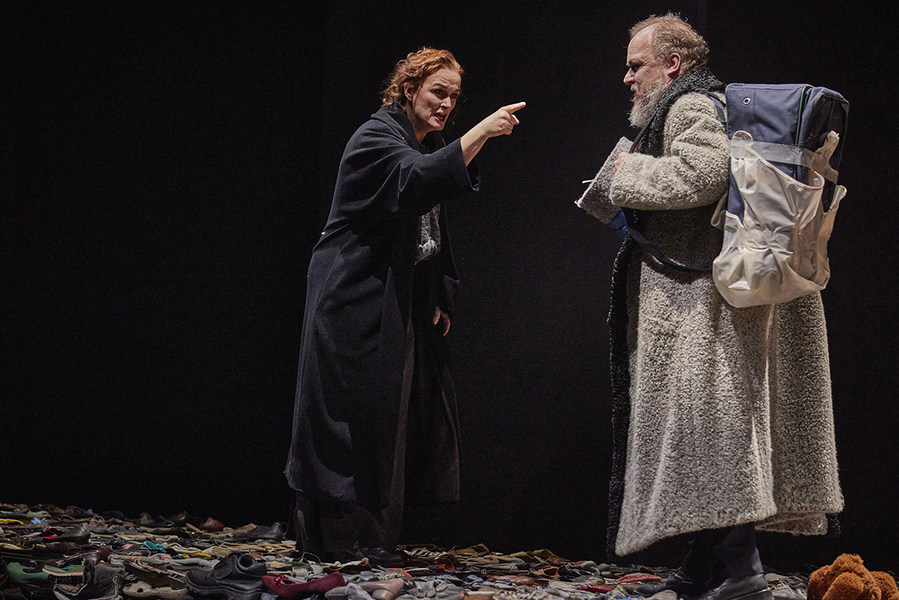
Gallery
